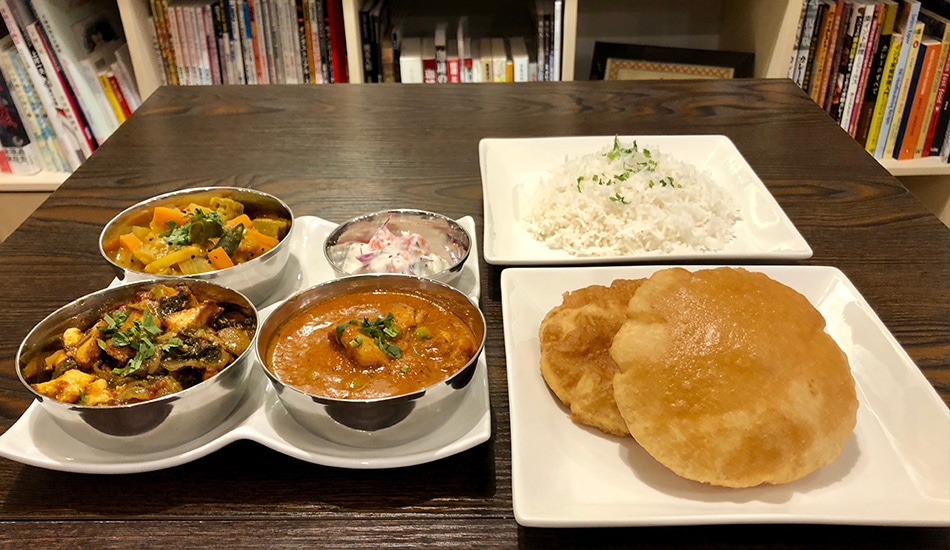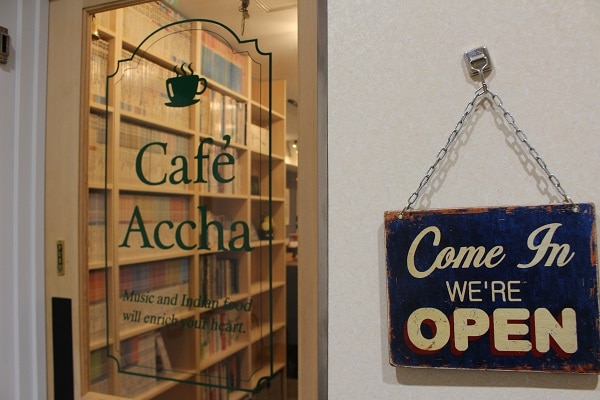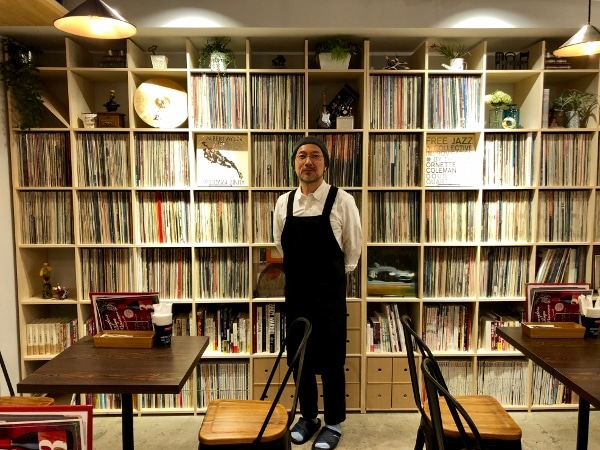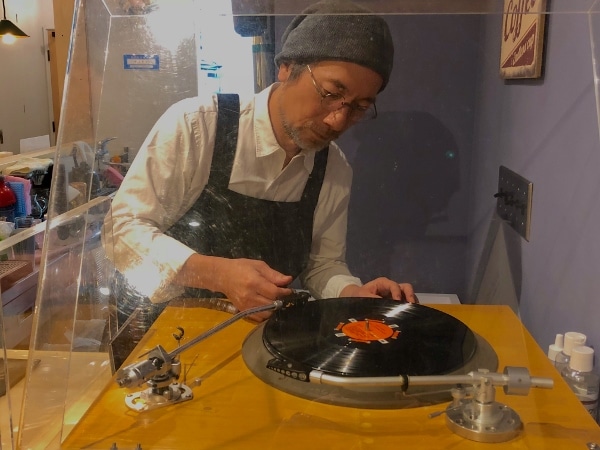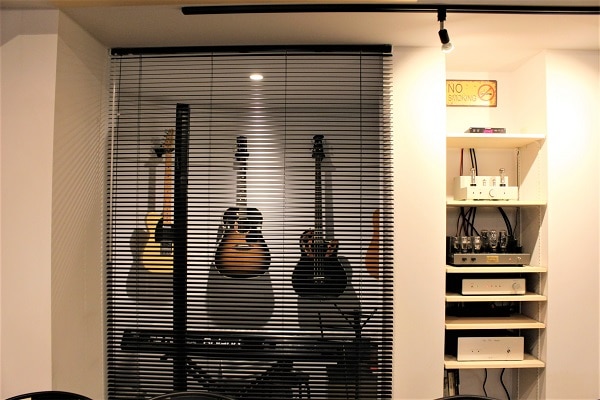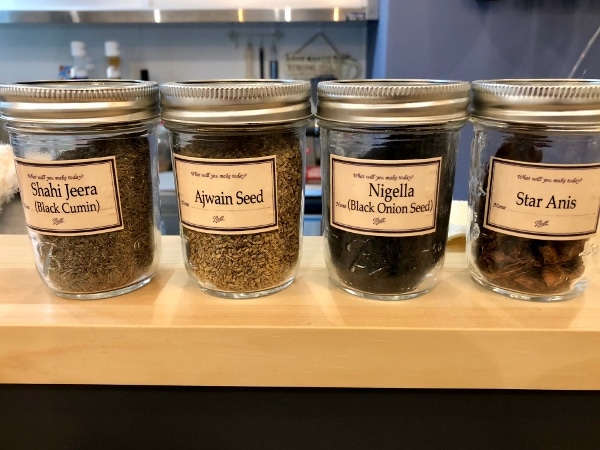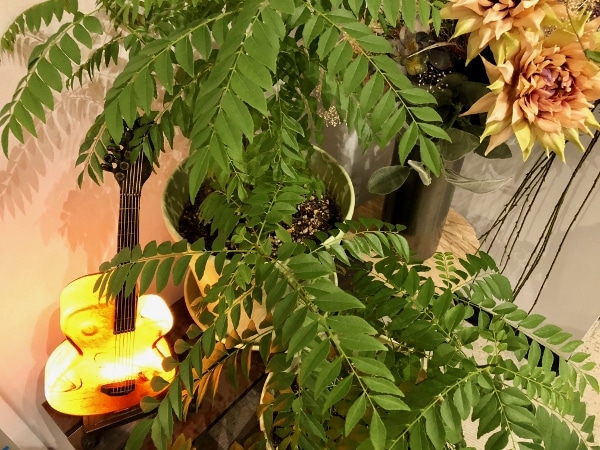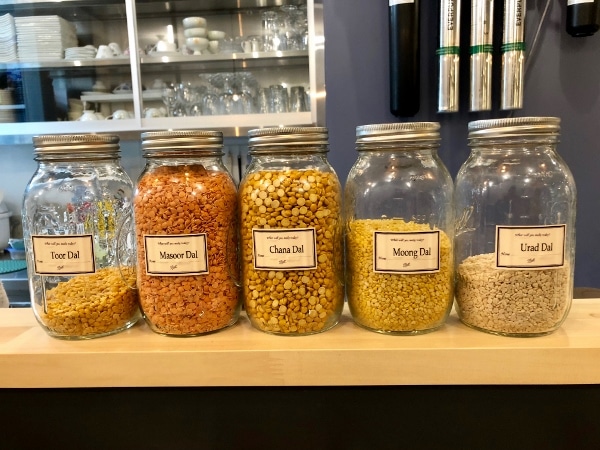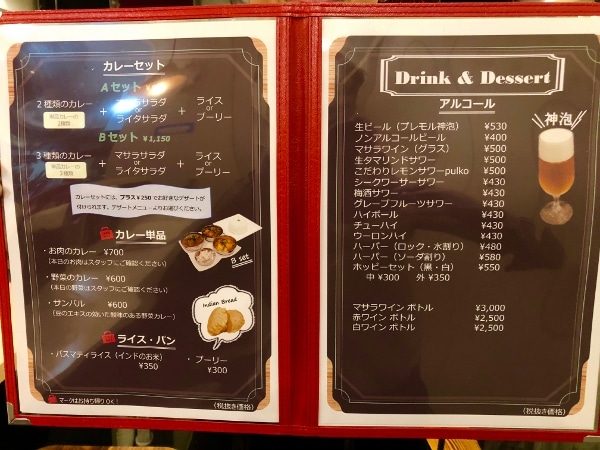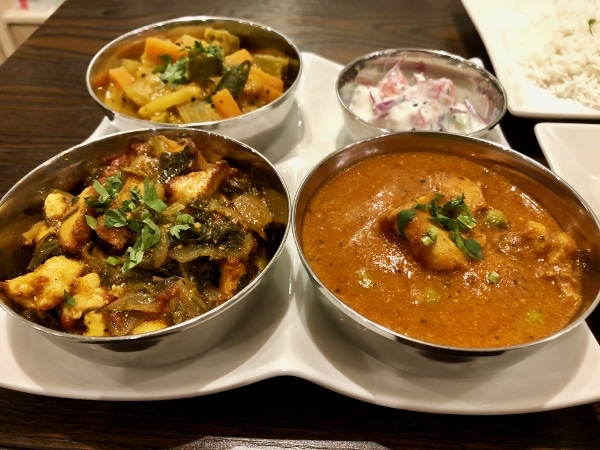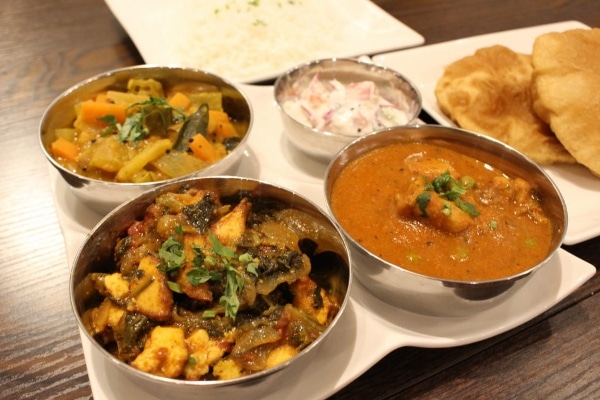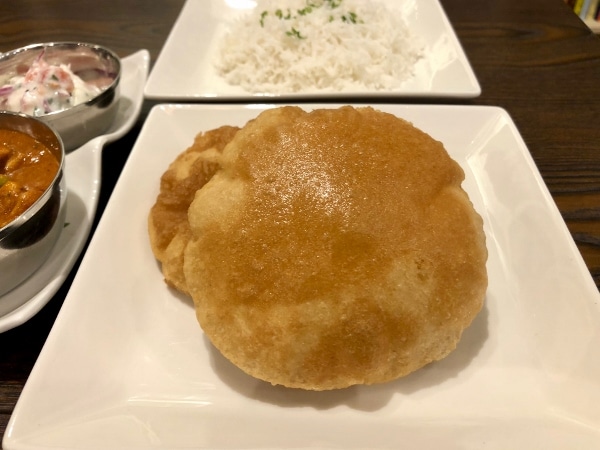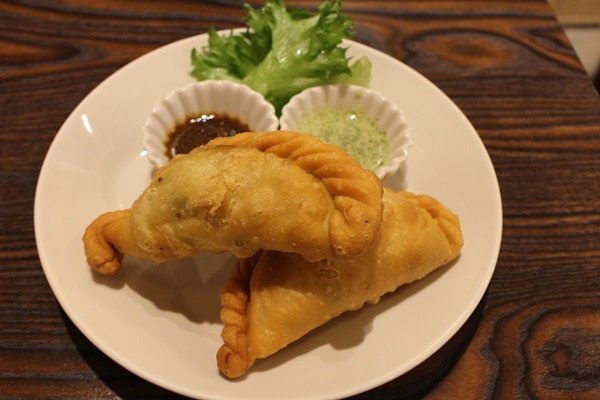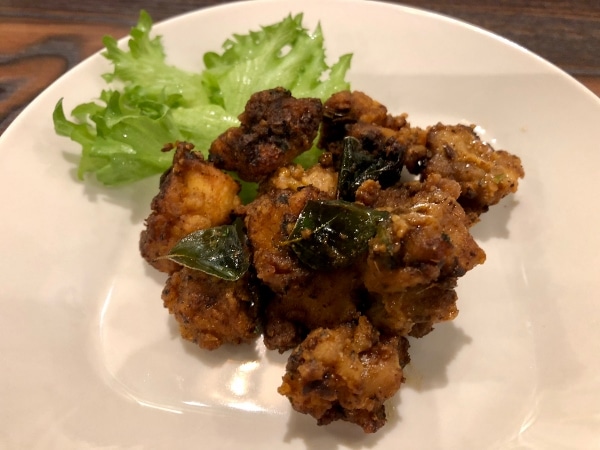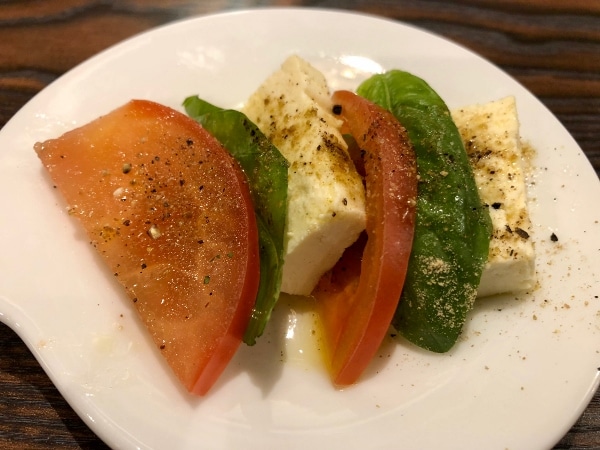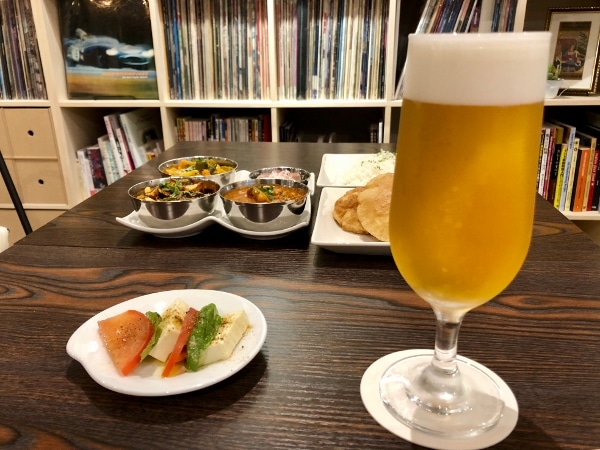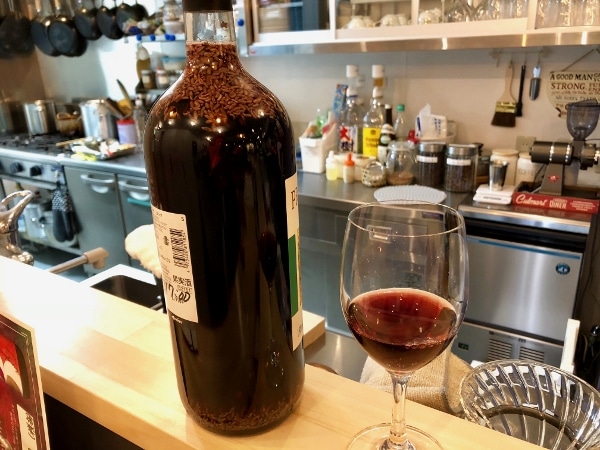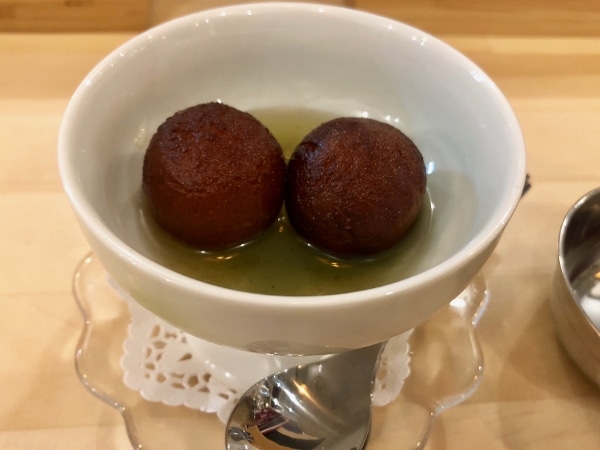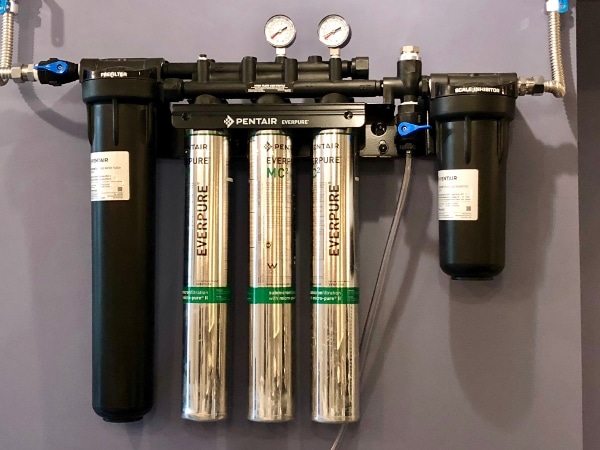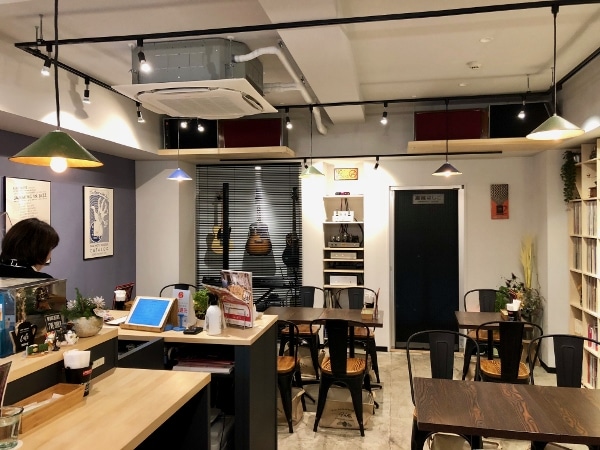Café Accha: Indian Curry, Jazz and Coffee in Kameido
Published: November 26, 2019
Imagine being able to turn all your favourite things, your hobbies, passions, and obsessions into your workplace. What kind of place would it be? What would it contain? One man who has managed that formidable feat is Mr. Koji Akimoto, proprietor of Café Accha in Kameido. Indian curry restaurant, jazz bar, acoustic music venue and café combined, it’s as warm and welcoming as it is original. On a recent rain-lashed afternoon, we dropped in for what became an extremely lengthy chat with Mr. Akimoto.
The first noticeable thing about Café Accha is it doesn’t resemble any Indian restaurant I’ve ever been in before. There’s a cheery welcome sign and an entrance hall featuring blonde wooden shelves stacked with audiophile magazines that leads into an extremely stylish and brightly-lit space. No heavy curtains, dim lights, or trilling sitar background music here!
Proprietor Mr. Akimoto is a trim, dapper man with a youthful demeanour. His eclectic record collection, amassed over a lifetime, contains a huge selection of mainly modern jazz, Japanese folk and pop, and western music from the 1960s to the present day. I could have looked through it for hours. He spoke eloquently and passionately about his history with, and passion for, Indian curry, music, and coffee.
“I was born and raised in Arakawa ward in east Tokyo,” he explained,” and first ate real Indian food when my father took me to the Ajanta restaurant in Kudanshita when I was in junior school. It was a mind-blowing experience; I’d never eaten anything so hot or so spicy and I was hooked. Later, in high school and when I was a university student I worked a part-time job at a curry restaurant on Centre-gai in Shibuya, where I slowly learned about Indian food.” A singer from his high school rock band days, Mr. Akimoto formed a musical trio while at university, performing in a variety of clubs, bars and pubs.
After university he followed the familiar arc of company, marriage, and child raising. His love of music was rekindled in middle age following an invitation to perform from a friend, and he then became reacquainted with Indian food when he started cooking classes with a renowned veteran curry chef and teacher. “We’re aiming to start live performances in the future, “he added. A committed audiophile, the quality of Mr. Akimoto’s system is second to none and produces a deep, rich, warm sound that anyone who grew up with vinyl records will appreciate immediately. With the mellow sounds of John Coltrane’s Ballads album as background music, he began working his spice magic.
“India is a vast country, comprised of regions with their own unique and original style. There’s nothing you can point to and declare definitively, ‘This is Indian food’. I think that’s the charm of it for me; the sheer breadth and depth of the cuisines means the more you learn the more fascinating it becomes. It’s not just the actual recipes themselves but the whole back story behind them that is so attractive. The spices are the key. Nowadays we’re able to obtain top quality, fresh spices from spice trading companies in Tokyo and we can even grow some of our own,” he adds.
“Until quite recently, it was difficult to find curry leaf in Tokyo. Curry leaf, along with mustard seeds and chopped onions are the key ingredients in South Indian food. Now we are able to source a ready supply and supplement that with our own plants.” What at first seemed to be a decoration was in fact part of the recipe.
It’s not just the spices. Café Accha boasts a fine selection of everything, including lentils; from left are yellow split pigeon peas, red lentils, split chickpeas, mung beans, and black lentils.
The menu at Café Accha is surprisingly simple. There are three curries available every day: one meat, one vegetable and one sambar. Sambar is the soupy South Indian speciality made with lentils, tamarind, vegetables and a cornucopia of spices including curry leaves, fenugreek and sambar masala. The styles of the curries change daily depending on the season, the ingredients available and Mr. Akimoto’s mood. “I’ve got an uncountable number of recipes,” he says, laughing.
Two sets are available every day. The A set features two curries, masala salad or raita salad and rice or puri bread. The rice is a light but nutty basmati variety. The B set features all three of the daily curries plus masala or raita salad and rice or puri bread. The former is 950 yen, the latter 1,150 yen. The day we visited the three curries were butter chicken, spinach and paneer and a sambar containing carrots, daikon radish, okra and split pigeon peas.
The chicken was rich and buttery but had a little bite to it, while the sag paneer, featuring homemade cheese created from high fat milk, was exceptional, too. The cheese, which had a much firmer texture than usual, was superbly creamy. The sambar, with its sweet and sour tamarind base and complex spice mixture was an absolute treat. The spice combinations in each dish were perfectly balanced, light and delicate. Well-spiced but not overpowering, one could easily eat them every day.
Like chapatis, puri flatbread is made from whole wheat flour but unlike chapatis, which are cooked on a hot griddle, puri are deep fried. Frying the puri creates an appealing golden brown colour and causes the bread to puff up into a ball. “There’s no naan on the menu,” says Mr. Akimoto. “That’s for a couple of reasons; I want to make regular Indian-style home cooking, the kind of fare that people prepare for themselves, not restaurant style. Generally speaking, since naan is made in a tandoor oven and most ordinary people don’t have one in their homes it’s a special treat, something they buy from a shop or restaurant. Naan is also a northern style of bread, with rice being the principal staple in the south.”
The menu at Café Accha contains a variety of other favourites such as these samosas. Remarkable value at 500 yen, they come with two homemade dipping sauces; a green chutney containing yoghurt, mint, coriander and chili and a tamarind sauce with coriander and black cumin. They were great, the pastry crisp and flaky, the filling hot and spicy, yet entirely oil-free.
The somewhat bizarrely named Chicken 65, featuring curry leaf, was the hottest item on the menu. Pungent with chili and perfect with beer! Please ask Mr. Akimoto why it’s so named!
Another tempting treat is this paneer caprese. Usually made with mozzarella cheese, the substitution of the firm-textured, rich and creamy homemade paneer cheese is an inspired touch.
Draft beer at Café Accha is Premium Malt’s. No ordinary Premium Malt’s though, but the Kamiawa style with the superfine head. Smooth and creamy, it goes down a treat with Mr. Akimoto’s creations, particularly the Chicken 65. Highballs and sours are also available, including a terrifically tasty tamarind sour which is highly recommended. Lassi with homemade yoghurt is also available.
Another interesting beverage is this masala wine, an Italian red wine infused with a selection of herbs and spices.
If by some miracle you’re still hungry or crave something sweet then Café Accha has just the thing for you: Gulab Jamun. Dumplings made with cream, deep fried and soaked in a syrup made from sugar, rosewater and cardamom, they are often referred to as Indian doughnuts. Exceptionally sweet, we recommend sharing! They are 300 yen, as is the homemade yoghurt with kithul sauce. Kithul sauce is a product of Sri Lanka, a naturally sweet sauce made from the sap of the fishtail palm tree. An original dessert of frozen yoghurt, frozen fruit and vanilla ice cream blended together is also on the menu, while a staff member with a “coffee meister” qualification is on hand to lovingly prepare original blend coffee.
Even the water is special at Café Accha. “We use only the Pentair Everpure system water for washing and cooking,” says Mr. Akimoto, who is extremely fastidious about every aspect of Café Accha.
And just what does “accha” mean? “Well, it’s a multi-purpose word in Hindi,” says Mr. Akimoto. “It basically means “good” but has a variety of other meanings such as an expression of surprise, acknowledgment or agreement, and is also used to attract someone’s attention or as an exclamation of reproof.” After having spent a very pleasant time in Café Accha, sampling the delicious food and drink and listening to great music in a very comfortable environment, I can say it’s more than just “good”. If you’re in the Kameido area (and why shouldn’t you be?) just drop in. You’ll be very happy that you did. Guaranteed!
Story and some photographs by Stephen Spencer

